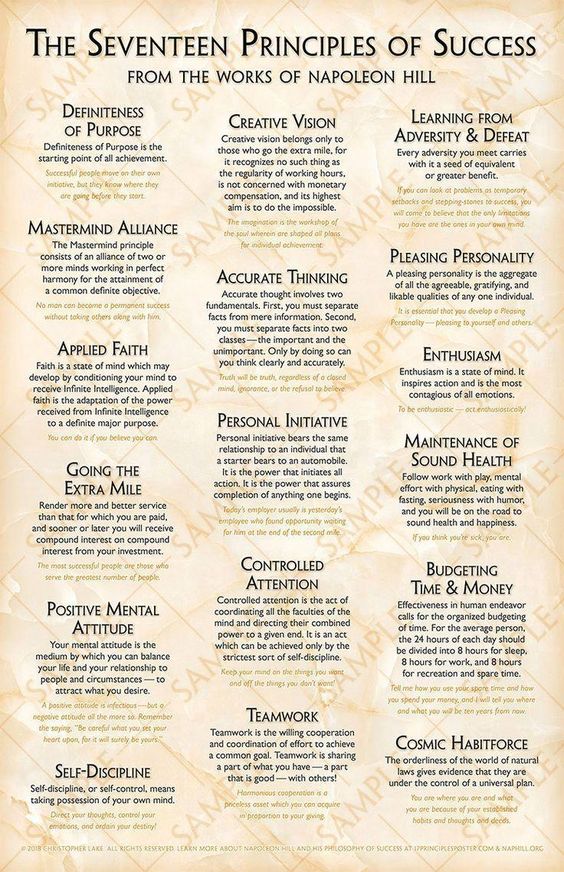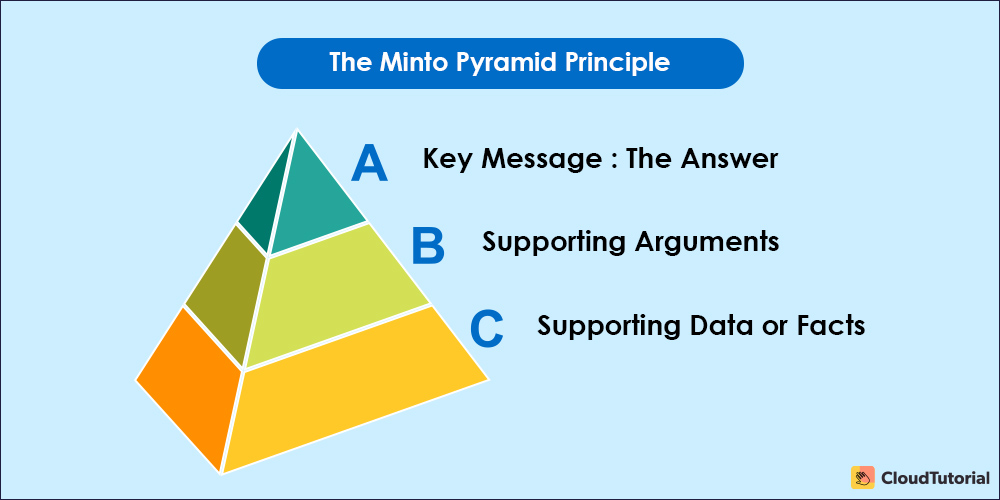Principles of Success
Principles of Success – Achieving Sustainable Impact

The Appleton Greene Corporate Training Program (CTP) for Principles of Success is provided by Dr. Baumgartner Certified Learning Provider (CLP). Program Specifications: Monthly cost USD$2,500.00; Monthly Workshops 6 hours; Monthly Support 4 hours; Program Duration 12 months; Program orders subject to ongoing availability.

Personal Profile
Dr. Baumgartner, EMBS has worked with senior private and public sectors clients around the world on highly sensitive and critical strategy and delivery programs for more than 25 years. He has played a pivotal role in driving transformative economic development projects across the globe, partnering with presidents, prime ministers, and their cabinets as well as with private sector leaders to shape and execute ambitious strategies. His expertise spans from founding special economic zones to launching new cities, forging strong alliances with global corporations, and leading key strategic initiatives to success. Working closely with top executives and visionary entrepreneurs alike, he brings dreams to life – fueling innovation and passion at every level. With hands-on board-level experience, he deeply understands the weight of leadership and the intensity of high-stakes decision-making.
This training program draws on the depth of Dr. Baumgartner’s extensive experience and is designed for individuals driven by a passion to make a meaningful impact – be it in private or public sector, or as independent changemakers. It empowers those aiming to create real value, whether in for-profit or non-profit environments.
Dr. Baumgartner is a Certified Instructor of the Napoleon Hill Foundation. Additionally, the program doesn’t stop at Napoleon Hill’s Success Principles. It transforms the knowledge and moves it to the 21st Century, explores modern project management and delivery tools, emphasizes the success critical role of positioning and communications, and looks into work-lifestyle components that are critical for long-term sustainability and success.
To request further information about Dr. Baumgartner through Appleton Greene, please Click Here.
(CLP) Programs
Appleton Greene corporate training programs are all process-driven. They are used as vehicles to implement tangible business processes within clients’ organizations, together with training, support and facilitation during the use of these processes. Corporate training programs are therefore implemented over a sustainable period of time, that is to say, between 1 year (incorporating 12 monthly workshops), and 4 years (incorporating 48 monthly workshops). Your program information guide will specify how long each program takes to complete. Each monthly workshop takes 6 hours to implement and can be undertaken either on the client’s premises, an Appleton Greene serviced office, or online via the internet. This enables clients to implement each part of their business process, before moving onto the next stage of the program and enables employees to plan their study time around their current work commitments. The result is far greater program benefit, over a more sustainable period of time and a significantly improved return on investment.
Appleton Greene uses standard and bespoke corporate training programs as vessels to transfer business process improvement knowledge into the heart of our clients’ organizations. Each individual program focuses upon the implementation of a specific business process, which enables clients to easily quantify their return on investment. There are hundreds of established Appleton Greene corporate training products now available to clients within customer services, e-business, finance, globalization, human resources, information technology, legal, management, marketing and production. It does not matter whether a client’s employees are located within one office, or an unlimited number of international offices, we can still bring them together to learn and implement specific business processes collectively. Our approach to global localization enables us to provide clients with a truly international service with that all important personal touch. Appleton Greene corporate training programs can be provided virtually or locally and they are all unique in that they individually focus upon a specific business function. All (CLP) programs are implemented over a sustainable period of time, usually between 1-4 years, incorporating 12-48 monthly workshops and professional support is consistently provided during this time by qualified learning providers and where appropriate, by Accredited Consultants.
Executive summary
Program “Principles of Success – Achieving Sustainable Impact”
Positioning of the Program
Some projects and transformations succeed; others fail. Some individuals always appear to be “lucky”, others are constantly struggling. How come? Is it all just a result of good (or bad) luck and coincidence? About being at the right place at the right time? Or is there more to it?
There certainly is! But how to ensure that success? What are the distinctive principles and frameworks that can be applied? What can individuals, and groups, do to become (more) successful, in a sustainable way? Not just theoretically, but very practically?
The training program’s foundations build on the research and writing of Napoleon Hill, who studied meticulously some of the most successful people of his time, such as Andrew Carnegie, Thomas Edison, and Henry Ford. Napoleon Hill’s Success Principles are as relevant today as they were at the time when he compiled them. “Whatever the mind can conceive and believe, it can achieve”, yet “nothing comes from nothing”. Success requires purpose and positive mental attitude, together with going the extra mile, while maintaining balance. And most importantly: a quitter never wins, while a winner never quits! During the program, we will jointly explore all success principles, ask ourselves how to apply them in today’s context, and discover how to use them for our best benefit.
The program doesn’t stop at Napoleon Hill’s Success Principles. It explores further modern project management and delivery tools, emphasizes the success critical role of positioning and communications, and looks into work-lifestyle components that are key for long-term sustainability and success.

Objectives of the Program
Many training programs focus solely on practical tools and methods, or alternatively, on motivation and positivity. However, true success demands both passion and skill. This program delivers on both fronts, equipping participants with the mindset and the practical expertise needed to excel.
The Importance of a Success Mindset
“It takes half your life before you discover life is a do-it-yourself project” – Napoleon Hill
Because it is a reminder of the personal power we have but ignore we possess, Hill’s writing has struck a chord with so many readers. In life, both personally and professionally, we can become so fixated on the results that we completely overlook the processes that went into getting there. Pay, work titles, career progression, a home, a trip, a marriage, and children. We constantly evaluate and contrast what we receive while completely ignoring what we offer.
The greatest approach to raise outputs, however, is to increase inputs in a meaningful way, just as in any successful business strategy. Moments make up our lives (inputs). So it stands to reason that consistently making the most of the present moment is the smallest yet most significant change we can make in our lives.
Simple to say. But it is far more challenging to achieve because it calls for numerous microdecisions, which taken together will make a major difference.
Many successful people weren’t just “naturally successful” from the outset, as Hill has frequently demonstrated in his writings. Some of them began from nothing and worked their way up; others, like Henry Ford, even created something that had not existed before.
If Ford would have asked the people what they wanted, they would have said faster horses.
Determining their ultimate purpose, their big objective, and then pursuing it with a burning desire to achieve and to realize the objective they have set for their lives was one of many traits shared by all the inventors and business owners Hill interviewed over the course of 20 years. The first thing they did was to get their thinking as ready as they could be to fulfil their stated purpose.
“Most great people have achieved their greatest success just one step beyond their greatest failure.” — Napoleon Hill
The pursuit of your own self-development is frequently the most rewarding route to success and personal joy. The radically successful and content are deeply interested in themselves and their own personal growth. Through self-discovery, people continue to be genuinely curious and enthusiastic about bettering themselves.
The Importance of Project Success Tools
While the right mindset is a critical component, it is not sufficient by its own. Using commitment and applying project management tools, you may ensure that a project’s work is performed according to plan and you are pursuing your major purpose diligently and effectively.
By putting in place those tools, it is made sure that nothing is overlooked. Instead, everyone always has a plan of action in place to ensure that they are productive and responsible for their activities.

Target Group(s) of the Program
This program is an offering to purpose-driven organizations and individuals that want to make a real difference, rather than focused on a specific sector in the classical way.
If you are or want to become such an organization or individual, and you think you could benefit from management and project execution principles that have been proven successful in the corporate as well as public sector and not-for-profit/NGO world, this program is for you.

In a similar logic, the program can help start-ups and organizations that are growing quickly, as well as emerging entrepreneurs.

Overview of Project Approach
This program, “Principles of Success – Achieving Sustainable Impact”, takes participants on a vast and far-reaching journey in keeping with a comprehensive perspective on the “Principles of Success”, allowing each participant to focus (with the support of the coach) on aspects that are of particular relevance to her/him. The program encourages (and requires) participants to identify their own strengths and limitations, perceive strengths and limitations as possibilities (rather than threats), and start their own growth paths.
The program heavily relies on Napoleon Hill, his “Principles of Success,” and the writings and coaching of Hill.

It is not merely a “Napoleon Hill seminar,” though; the curriculum uses the underlying ideas and principles to understand and communicate them in a way that is appropriate for the situation, challenges, and society of today.
The program is very interactive and, from the outset, engages the participants in conversation and takes them on their own journey, with specific, tangible value-add and impact. It is not “simply theoretical” or “purely hands-on.” That said, the program does impart the underlying ideas and foundations of Napoleon Hill, enabling and inspiring the participants to continue investigating any areas of particular interest outside of the program.

Structure of the Program
This Principles of Success program is firmly grounded in the foundational principles outlined by Napoleon Hill and other renowned thinkers. It offers an in-depth exploration and practical application of these success principles to empower participants in achieving their goals.
In addition to Napoleon Hill’s Success Principles, participants will get the opportunity to explore the following:
• The Pyramid Principle: Logic in Writing and Thinking by Barbara Minto, which suggests that people’s ideas should be communicated in a pyramid format in which summary points are derived from constituent and supporting sub-points
• Delivery Excellence (building on the thinking and practical experiences of Sir Michael Barber et al)
• Problem Structuring and Solving Frameworks (as applied by leading global management consultancies such as McKinsey & Company)
• Vitality: Comprehensive Balance and Well-Being (building on the thoughts and considerations of Sebastian Kneipp and others, in a 21st century evolution)
• Personal, Social and Ecological Sustainability (in today’s world, sustainability has come to be seen as an intrinsic component of success, whether defined as ESG goals or in a wide range of other ways.)
The program compromises 12 modules, blending theoretical insights with hand-on exercises. Participants are encouraged to engage actively for maximum benefit, as this is designed to be a highly interactive experience.
Each module will combine (i) theoretical foundations, (ii) sharing of practical experiences (both by the coach/trainer and the participants, (iii) interactive exercises during the module, and (iv) assignments, to be executed between modules.
Curriculum
Principles of Success – Monthly Project Calendar: A Year-Long Guide
- Key Principles Part 1
- Key Principles Part 2
- Defining Purpose
- Energetic Passion
- Powerful Masterminds
- Focused Problem-Solving
- Successful Planning
- Strong Narratives
- Delivery Excellence
- True Engagement
- Positive Balance
- Looking Forward
Program Objectives
The following list represents the Key Program Objectives (KPO) for the Appleton Greene Principles of Success corporate training program.
Principles of Success – A look into the Monthly Project Calendar

- Month 1 Key Principles Part 1 – This introductory module sets the stage by explaining the program structure, introducing key thinkers like Napoleon Hill, and outlining the core principles of success. Participants will learn what is expected of them to get the most out of the program. By exploring foundational success principles, they will gain a broad understanding of essential ideas and insights. This “big picture” overview is intended to give them immediate tools to apply in their professional and personal lives, preparing them for the deeper dives ahead.
- Month 2 Key Principles Part 2 – Continuing with success principles, this module covers additional foundational concepts. There will be a balance of presentations and interactive exercises, allowing participants to digest and discuss these ideas. Toward the end, participants are introduced to their personal project assignments, setting the stage for hands-on application. They will also discuss their initial project ideas with the group to clarify their goals and objectives.
- Month 3 Defining Purpose – This module emphasizes the importance of having a clear, well-defined purpose, as purpose is a key driver of success. Participants will explore the concept of “major purpose” and how it distinguishes successful people. They will also learn criteria for crafting a strong purpose statement. By the end of the module, each participant will be encouraged to draft a personal purpose statement—a task that often proves challenging but transformative.
- Month 4 Energetic Passion – Napoleon Hill speaks of “burning desire”, other writers of “passion”. Yet other terms are “determination” and “commitment”. What it all comes down to: positive energy – positive energy that is targeted toward the major purpose. This module will look at the importance of energy, and passion as an expression of that targeted energy. It will also spend time on positive mental attitude (vs. negative mental attitude), and what such positive mental attitude actually achieves in our consciousness as well as sub-consciousness.
- Month 5 Powerful Masterminds – This module introduces the concept of mastermind groups as a powerful tool for leveraging diverse skills and perspectives. Participants will learn how to form effective teams that can accelerate their progress toward their goals. They will discuss how to find the right members, create synergy, and manage group dynamics. The emphasis will be on seeing teamwork as an opportunity rather than a challenge, unlocking potential through collaboration.
- Month 6 Focused Problem-Solving – A major purpose and burning passion, even in combination with the most positive mindset, will run into difficulties unless they are coupled with actual skills to tackle problems and challenges. It is not enough to want something; it requires the necessary skills and tools to achieve it. This module will look at various problem-structuring and problem-solving concepts as well as helpful techniques, as developed, tested and applied by major management consulting firms.
- Month 7 Successful Planning – Good planning is essential to bridge the gap between ideas and real-world results. This module covers key elements of effective planning, such as setting realistic goals, defining steps, and managing timelines. Participants will share personal experiences with planning, learning from both successful strategies and common pitfalls. By the end of the session, they’ll be equipped with tools to turn abstract ideas into actionable, achievable plans.
- Month 8 Strong Narratives – Wanting the right things and planning for them are great – but participants also need to be able to convey their stories (their narratives) to others. For a narrative to be strong, clarity in the writer’s/teller’s mind comes first. Following that, there are a number of useful tools and methods to encourage and facilitate strong narratives. This module will look into major principles of strong narratives, from a theoretical as well as practical experience. It will, e.g., highlight Minto’s Pyramid Principle of Communications, but also borrow from analysing successful speeches, and where they are deriving their power from.
- Month 9 Delivery Excellence – Having a clear major purpose, burning for it, having a plan, and a strong narrative – what can go wrong? Well, it is actual delivery that makes the difference. The world is full of grand ideas and even more talking – but only those ideas that have made it to implementation (delivery) have really left their mark. This module will look at models of delivery excellence, including the so-called Delivery Unit methodology used in public sector and large-scale corporate transformation programs. It will also bring in various other delivery methodologies, focusing on offering the participants options and helping them distil the uniting principles found in all methodologies. An additional topic in this module will be the importance of “standing up again”, of looking at (interim) failure as a learning opportunity to do better going forward.
- Month 10 True Engagement – Effective engagement goes beyond simple communication to building genuine connections with key stakeholders. Participants will learn to create stakeholder maps, develop engagement strategies, and tailor interactions to different groups. Peer coaching will play a major role, as participants help each other refine their approaches to engagement. This collaborative approach will strengthen their ability to create meaningful, two-way connections.
- Month 11 Positive Balance – This module emphasizes the importance of maintaining a healthy balance between work and personal life for sustained success. Participants will explore strategies for managing stress, recharging energy, and nurturing well-being. Through case studies and motivational concepts, they will see how periods of intense effort can be balanced with relaxation and enjoyment. This approach to positive balance reinforces long-term resilience and effectiveness.
- Month 12 Looking Forward – In this final module, participants will reflect on their progress and key takeaways from the program. They will set personal goals for the future and discuss these commitments with the group, fostering accountability. The module concludes with a celebration of their journey, and where possible, a motivational team activity. This final gathering is designed to leave participants with a sense of achievement and readiness to continue applying what they’ve learned.

Methodology
Principles of Program Methodology
Purpose, Mindset/Motivation, Success Principles, Specific Tools – Our Approach
“Principles of Success – Achieving Sustainable Impact” supports developing the right mindset, familiarizing with the necessary tools and techniques and overcoming obstacles so that participants can realize their full potential. Any major undertaking, whether in the public or private sector calls for talented, enthusiastic people who are driven to reach their goals while also relishing the journey and inspiring others.
Building on a modern interpretation of Napoleon Hill’s Principles of Success, we modularly and flexibly integrate them with other strategies.
We guide participants on a journey that begins with defining their purpose – the „what“ they aim to achieve – and then dive into the „how“, drawing on Napoleon Hill‘s Principles of Success alongside proven tools and techniques. With a clear path in view, we move to „let‘s go“, offering hands-on coaching and skill-building to support each step of implementation. Finally, we arrive at „done“, where real impact is realized. Through a blend of training, coaching, and motivational modules, we support and empower participants at every stage of this transformative journey.

Structure of the Program and its Modules
The program comprises 12 modules, blending theoretical insights with hand-on exercises. Participants are encouraged to engage actively for maximum benefit, as this is designed to be a highly interactive experience.
Team members will be expected to work on specific projects (or define a specific purpose they are working towards). Typically, participants of the program would each have their own purpose/project, but – in coordination with the client – there may also be settings where the participants are working together on a specific project.
Each module will combine (i) theoretical foundations, (ii) sharing of practical experiences (both by the coach/trainer and the participants, (iii) interactive exercises during the module, and (iv) assignments, to be executed between modules.
Based on experience, some participants will seek and benefit from individual coaching on top of/complementing the program. This allows to dive deeper on specific topics and/or cover specific questions that an individual participant – for whatever reason – prefers not to fully share in the group. Such individual coaching is possible (and encouraged), but it is not part of the standard package.
Also, in case of group project settings, separate problem-solving support or project delivery coaching may be offered as an optional add-on.
Module 1 will serve as an introduction and then move quickly to an overview of key principles and concepts. Module 2 will continue that introduction and then offer a Q&A, before moving to explaining the initial assignment.
Modules 3 – 11 will then pursue the following standard pattern: (i) short synthesis of program to date, as introduction, (ii) debrief on assignments; room for questions and experiences, (iii) deep dive on a specific topic (presentation + interactive formats), (iv) new assignment/task.
Module 12 will provide an overall synthesis, debrief on the assignments and experiences throughout the program, provide room for Q&A, look at the perspective going forward – and celebrate completion of the program.

Methodological Foundations
Through the course of this program, participants will delve into the principles of success, exploring the underpinning foundations of the subject, which include but are not limited to: Napoleon Hill’s Principles of Success; Barbara Minto’s Pyramid Principle; Delivery Excellence; Problem Structuring and Solving Frameworks; Vitality: Comprehensive Balance and Well-Being; and Personal, Social and Ecological Sustainability.
Napoleon Hill and the Principles of Success
Around the past several decades, business executives, politicians, philanthropists, and artists from all over the world have been inspired by and directed by The Principles of Success:
1. Develop Definiteness of Purpose
2. Establish a Mastermind Alliance
3. Assemble an Attractive Personality
4. Use Applied Faith
5. Go the Extra Mile
6. Create Personal Initiative
7. Build a Positive Mental Attitude
8. Control Your Enthusiasm
9. Enforce Self-Discipline
10. Think Accurately
11. Control Your Attention
12. Inspire Teamwork
13. Learn from Adversity and Defeat
14. Cultivate Creative Vision
15. Maintain Sound Health
16. Budget Your Time and Money
17. Cosmic Habitforce
Different versions and combinations of those Principles exist, as research and writings have been advanced over time, both by Napoleon Hill himself and by others. For the purposes of this program, the individual Principles have been partially grouped and also combined with other tools and techniques, but all Principles will be covered. In addition, interested participants are highly recommended to dive deeper by reading Napoleon Hill’s books.
The Pyramid Principle – Logic in Writing and Thinking (Barbara Minto)
The Pyramid Principle of Communications, also known as the Minto Pyramid Principle (named after Barbara Minto, a former McKinsey partner who developed the thinking and coined the term), is a technique for organizing and processing enormous volumes of data so that a story, message, or presentation may be delivered without leaving out crucial facts.
In written materials or presentations, the Minto Pyramid’s basic tenet is to get straight to the point. This makes sure the audience is engaged and enables the creation of a captivating story that is simple to recall and comprehend.
After introducing the thesis statement, the Minto Pyramid Principle is used to organize the points and arguments. The material is then provided before diverging in an understandable and insightful way to the exact details.
Barbara Minto’s book “The Pyramid Principle” was released by McKinsey & Company in 1978. In the shortest amount of time feasible, Barbara Minto was in charge of training new hires to become knowledgeable consultants. Her approach to communicating is as relevant today as it was when Barbara Minto first published her book.

Delivery Excellence
Delivery excellence is a wide field, with a myriad of thinking and publications, from an incredibly wide range of angles. All this interest and research as well as thinking demonstrates one key fact: Delivery excellence is success critical – yet apparently often challenging to achieve.
When speaking of delivery excellence, literature is referring to a “customer-centric approach to defining, building, and releasing a continuous flow of valuable products and services. […] It enables your organization to deliver value efficiently and effectively by eliminating waste through process optimization, increased collaboration and communication across departments, a better understanding of customer needs, and using technology for automation and data-driven decision-making. It must focus on critical success factors such as customer satisfaction, cost reduction, improved quality, and faster market time. It is a continuous effort that requires strategic planning and ongoing execution to drive business value.” (Rachel Hayes, Delivery Excellence: Cultural Framework for Continuous Improvement)
The above definition, and many similar ones, emphasize the customer-centric approach as well as the continuity and comprehensive required for successful delivery. Delivery excellence is a marathon, with a number of sprints required in between. This is what it makes it so difficult. But without actually delivering on whatever you have set your mind on, whatever you are passionate about, it all just remains “hot air”. Without the commitment of getting up again after falling down, without the determination to use failures as learning opportunities for the next time, success is unlikely. As Napoleon Hill put it: “Every defeat, every disappointment, and every adversity carry seeds of equivalent or greater benefits.”
The “Principles of Success – Achieving Sustainable Impact” program also takes a close look at “Deliverology”, as introduced by Sir Michael Barber, e.g., in his book “Deliverology 101”. Originally developed in the public sector context (and in particular focused on education reform), the principles, tools and techniques are suited for a wide range of delivery challenges, not just in the public sector, but also in the private sector – and for personal ambitions and objectives. The biggest advantage: those tools and techniques are very specific and have been tested successfully around the world. Exploring and experiencing them will provide direct impact and show short-term effects for the program participants.
Problem Structuring and Solving Frameworks
The true “secret sauce” of leading consulting firms is their ability of systematically structuring problems, from the problem definition via root-tree analysis all the way to developing hypotheses on potential solutions and assessing them in a systematic way. When hiring new consulting staff, a lot of the focus of internal training and coaching, during training programs and on-the-job, is on honing problem definition, structuring and solving skills. There is a whole collection of instruments and methods for locating the root causes of a problem and developing workable solutions.
The ”Principles of Success – Achieving Sustainable Impact” program takes a subset of them, providing the opportunity to experience or advance familiarity and comfort with a hypotheses driven issues tree approach, as applied, e.g., by McKinsey & Company and many other leading consultancies. Those practical techniques and tools will be incorporated into the Principles of Success framework, demonstrating the complementarity of those approaches.
Vitality: Comprehensive Balance and Well-Being
The line separating work and home has gotten increasingly hazy. While blurred lines are not always a bad thing, the speed at which they have blurred has made it difficult for many employees to adjust and strike a healthy work-life balance.
Employees must have a healthy balance between energy and stress, a decent work-life balance, a manageable workload, and they must be physically fit in order to have high levels of vitality and well-being.
Less sick days taken, production rises, and higher staff involvement and commitment are all advantages of this as well.
Hence, the program will also look at work-life balance – regarding that balance as an integral element of being able to achieve impact, rather than an “afterthought”. It will do away with the idea of “longest hours” being the way of showing most commitment and ambition, and focus instead on “most effective hours”.
There is a vast amount of recent literature on this topic, with a lot of inspiration to be gained for it. Without discounting that recent literature and thinking, the program actually intends to also take a step back in history. The topic is not as new as one may think looking at the recent explosion of literature available. One might, for example, find some interesting ideas and “recipes” with Sebastian Kneipp, who died more than 100 years ago, in 1897.
Personal, Social and Ecological Sustainability
One of the most difficult yet gratifying aspects of business might be managing a firm, but is that all there is to it? It takes a lot to create a good working environment, and now more than ever, a sustainable workplace is essential.
The program will explore the range of themes (or angles) associated with “sustainability”. At the moment, the primary focus appears to be on “green sustainability”, potentially in combination with “personal sustainability” (in the sense of work-life balance, as referred to above).
Quoting from a May 2020 article published by Financier Worldwide (Special Report: Business Strategy and Operational Performance, by Marissa Corda and Beth English): “Sustainability has become an important factor in business strategies. How a company performs socially and environmentally is becoming just as important as how it performs financially. The growing demand by consumers and investors for sustainable products and services, coupled with increased scrutiny and reporting on corporate responsibility, are driving companies to pay greater attention to their environmental, social and governance (ESG) performance. However, sustainability is not just about ticking a box. Business has an important role to play in addressing some of the wider global environmental and social issues”.
Sustainability in the workplace is a strategy that calls for leadership and achieving objectives that go beyond laws and regulations. A lot of firms all around the world have embraced this way of thinking and are using it to highlight their corporate values, evaluate impacts and outcomes, stand out competitively, and enhance their operations. Employing sustainability in business gives managers and staff the chance to enhance operations, safeguard personnel, and accomplish sustainability for the entire company.
Industries
Dr Baumgartner has particular experience in travel infrastructure logistics (including special economic zones and large scale real estate/ city development), the public sector and the not-for-profit sector – but the program “Principles of Success – Achieving Sustainable Impact” really applies to anyone and any sector that is committed to making a difference and achieving major impact.
This service is primarily available to the following industry sectors:
Travel & Tourism
The travel and tourism industry is one of the fastest-growing and largest in the world, rebounding strongly after the challenges of 2020–2022. With increasing demand, businesses like tour operators, travel agencies, and related sectors are thriving by catering to the evolving needs of travelers.
The overlap between travel and tourism creates a vast ecosystem of services, from transportation (airlines, car rentals, even space tourism) to accommodation (hotels, Airbnbs, agri-tourism). Food, entertainment, and auxiliary services like tour operators and financial services further enrich the industry.
This corporate training program helps employees and managers in the travel and tourism sector keep in line with the latest trends and prepare themselves for a major transformation.
Logistics
The logistics sector has evolved into a complex network of interconnected services, often resulting in inefficiencies due to overlapping functions. Companies now seek streamlined, top-down operating models to ensure agility, cost efficiency, and sustainability.
Key areas of focus include:
• Stakeholder Management: Collaborating seamlessly across the supply chain for a unified service experience.
• Shipment Management: Leveraging automated platforms to improve booking, labeling, and end-to-end visibility.
• Data Management: Optimizing inventory, integrating systems, and ensuring real-time accuracy to enhance supply chain performance.
Our program empowers logistics leaders to redesign processes, optimize performance, and future-proof their operations for success.
Real Estate
The real estate sector spans renting, leasing, and managing tangible and intangible assets. It includes property management, real estate sales, REITs, and new city developments, which are driving economic activity worldwide.
From large-scale developers of special economic zones to niche providers, the sector’s potential is immense. Our training programs are tailored to equip real estate professionals with strategies to innovate, adapt, and maximize growth in this dynamic market.
Government
Governments face growing pressure to modernize through data-driven insights and agile operations. While traditional models struggle to meet rapidly evolving demands, opportunities lie in adopting sustainable practices and enhancing service delivery to rebuild trust.
Our program helps government leaders and employees upskill for the data revolution, enabling better decision-making, greater transparency, and cost-effective solutions to meet public needs.
Non-Profit & Charities
The non-profit sector is undergoing rapid transformation due to digitalization, donor expectations for impact and transparency, increased regulation, and climate challenges. Globally, non-profits contribute significantly to economies while addressing critical societal issues.
To thrive, organizations must embrace change, reduce costs, increase flexibility, and upskill leaders and teams. By applying success principles like those of Napoleon Hill, non-profits can amplify impact, improve resilience, and take proactive steps toward sustainability.
Our training empowers non-profits to drive transformational change and achieve their mission more effectively.
Locations
Geographically, Dr Baumgartner is based between Europe and the Middle East, but also spends a lot of time in the Americas, Central Asia and Africa. Hence, there is a high degree of geographical flexibility.
That said, this service is currently primarily available in English within and around the following locations:

Riyadh, Kingdom of Saudi Arabia
Riyadh is the capital of the Kingdom of Saudi Arabia and the largest city of the Arabian Peninsula, with almost 8 million inhabitants at this stage – and extensive plans and ambitions of further growth.
As the beating heart of Saudi Arabia, from a business as well as government perspective, Riyadh is currently undergoing change and development at an incredible pace – change and development that is experienced not only in Riyadh, but also in other major cities and regions of Saudi Arabia, such as Jeddah and the provinces along the Red Sea shore or Dammam and the Eastern Province.
This journey of transformation of epic scales the Kingdom of Saudi Arabia has embarked on is driven by Saudi Arabia’s Vision 2023, structured around three major themes: a vibrant society, a thriving economy, an ambitious nation:
“Saudi Arabia’s Vision 2023 is a pathway to the future. Unveiled in 2016, it represents a transformative and deeply ambitious plan to unlock the Kingdom’s vast potential, by creating a diversified, innovative and world-leading nation, for the benefit of future generations.” (Source: www.vision2030.gov.sa)
Transformation and ambitious growth reach from the highest levels of Government via businesses of all sizes – from Saudi Aramco, considered “the world’s most valuable company” all the way too SMEs and individual merchants – to individuals of all walks of life across the country.
“Principles of Success – Achieving Sustainable Impact” is perfect for such environment – it has the power of equipping individuals, companies as well as government departments with those additional skills and techniques that will help meet the extremely high ambitions.

Abu Dhabi, UAE
Abu Dhabi, spread (mainly) across a number of islands, is the capital city of the United Arab Emirates as well as the Emirate of Abu Dhabi. With a total area of the Emirate of 67,340 km2 (26,000 sq mi), it is by far the biggest emirate of the UAE and makes up around 87 percent of the federation’s total land area. The city of Abu Dhabi is home to approximately 1.5 million inhabitants.
When coming to Abu Dhabi, one is welcomed by massive developments, especially but not only on Saadiyat Island and Yas Island. In Abu Dhabi, Arab tradition and hospitality meet a modern business environment, welcoming residents as well as visitors from all over the world. This makes Abu Dhabi a very pleasant place to live at, to visit and to do do business at.
Abu Dhabi’s economy is still significantly influenced by the oil industry and related industries as well as wealth generated from oil. That said, Abu Dhabi has strongly diversified over the last years and is now home to a wide varieties of industries as well as a growing tourism destination. Abu Dhabi Global Market has gained an excellent reputation among global financial centers. What stands out in the economic planning of Abu Dhabi is the focus on sustainability from multiple perspectives.
Principles of Success – Achieving Sustainable Impact is a very good fit for this ambitious city and its business as well as public sector communities, as the city itself – building on the legacy of Sh. Zayed bin Sultan Al Nahyan – embodies and lives many of those very principles.
Dubai, UAE
Dubai has evolved from a regional trade hub into an aspirant global city, recently passing 3 million inhabitants. Unlike Abu Dhabi—which possesses over 90 per cent of the UAE’s oil and gas reserves—Dubai is a post-oil emirate. After peaking at 410,000 barrels per day in 1991, its oil production fell sharply. As a result, Dubai became an early proponent of economic diversification, especially of construction and real estate. In 2000, Dubai ambitiously set a target to grow its gross domestic product to $30 billion by 2010, only to achieve it by 2005.
As the economy of Dubai continues to evolve and create new opportunities, there remain strong incentives for multinational and large regional organizations and conglomerates to invest in and operate from the region. The fast pace of change is underpinned by a strong commitment to technology, digital infrastructure and building modern international hubs for business, leisure and travel.
With its high levels of diversification, Dubai has also created a wealth of new opportunities in the digital and knowledge economies. Increasing value is placed on higher level cognitive (abstract) tasks. Dubai is, therefore, a prime location for companies seeking to evolve innovatively and benefit from a highly global environment in a city that has a lot to offer not just business wise. For many people around the world, Dubai has become a dream destination.
Our Principles of Success program fits perfectly with the ethos of this extremely dynamic city, which always seeks the next challenge. It will enable participants not only to keep pace but actually stay at the forefront of innovation and competitiveness – not only within the highly competitive environment of Dubai, but also in global comparison.

Doha, Qatar
A relatively small Emirate in terms of geographic size and population (just over 2.5m), Qatar is far from short of ambition and opportunities. To the contrary, the business climate is vibrant, and the ever (and rapidly) changing skyline of Doha, its proud capital city, is an indicator of the dynamics found in Qatar. Compared to what it looked like just 15 or 20 years ago, one would be hard pressed to recognize today’s Doha, which is the primary hub and only major city of Qatar.
Qatar’s GDP per capita stands at approximately USD 67,000 (World Bank, 2021), still strongly driven by oil and gas, but increasingly also by other sectors, as part of Qatar’s diversification efforts.
And Qatar is keen to catch global attention and stand out – be it by developing Qatar Airways as one of the world’s most premium airlines, be it by the impressive Museum of Islamic Art and its collections, be it be having been host to the Football World Cup 2022. And that is seen but as the beginning of Qatar’s development plans.
The Qatar National Vision 2030 sets out those ambitions and plans in clear terms. Just a quick look at the forward leaves now doubts about the level of ambitions:
“Charting economic and social progress in modern societies depends on a clear vision and a strategy about how to get there. Wise political leaders know the direction in which they would like their societies to develop, balancing the interests of present and future generations. Qatar National Vision 2030 builds a bridge between the present and the future. It envisages a vibrant and prosperous country in which there is economic and social justice for all, and in which nature and man are in harmony. We need to galvanize our collective energies and direct them toward these aspirations. Strong Islamic and family values will provide our moral and ethical compass. The welfare of our children, and of our children yet to be born, demands that we use our resource-wealth wisely. Qatar must continue to invest in its people so that all can participate fully in economic, social and political life. Qatar must invest too in world class infrastructure to create a dynamic and more diversified economy in which the private sector plays a prominent role. This requires continuous improvements in the efficiency, transparency and accountability of government agencies. […]”
It is in this context that the Principles of Success – Achieving Sustainable Impact program can make a major contribution to achieving those ambitions, be it by helping public sector institutions develop the techniques and skills to achieve sustainable impact, be it by supporting private sector entities and/or individuals.

Vienna, AT
With over one-third of the nation’s population living in the metropolitan region of Vienna, which has 2.9 million people, Vienna is the most populous city in Austria. It also serves as the country’s cultural, economic, and political hub. It is the largest city on the Danube River. Vienna had two million residents before to the Austro-Hungarian Empire’s dissolution in World War I, making it the largest German-speaking city in the world until the turn of the 20th century.
The United Nations, OPEC, and the OSCE are just a few of the important international organizations that call Vienna home. The city is situated in the eastern region of Austria, close to the borders with Slovakia, Hungary, and the Czech Republic. This makes Vienna, positioned “in the heart of Europe” an important hub toward Eastern and Central Europe, while at the same time enjoying close links with and to the other German speaking countries (Germany, Switzerland, Liechtenstein).
Vienna is renowned for having an outstanding standard of living. The Economist ranked Vienna “the worlds’ most liveable city” in 2022. Mercer’s Quality of Living Index was topped by Vienna in 2019, for the tenth time in a row (no Index has been published since by Mercer, due to the Covid pandemic). Urban planners frequently utilize Vienna as a case study, and Vienna frequently holds conferences on urban planning. Vienna is also a highly popular location for international congresses and conventions.
At the same time, Vienna is also a cosmopolitan city of business, with activities in a wide range of sectors.
Whatever your specific ambition might be, whether directly in Vienna or in one of the surrounding cities and countries (including Germany and Switzerland, but also Eastern Europe), Principles of Success – Achieving Sustainable Impact will help you realize them. (Please note: At this stage, the program is only offered in English.)
Program Benefits
Positioning
- Sustainable Success
- Empowered Employees
- Theoretical Foundations
- Hands-on Approach
- Cutting Edge
- Positioning Power
- Competitive Advantage
- Accelerated Growth
- Effective Communication
- Improved Image
Management
- Valued skills
- Increased Engagement
- Increased Productivity
- Innovation
- Positive Environment
- Improved Communication
- Leadership Excellence
- Increased Collaboration
- Happier Team
- Market growth
Human resources
- Change Culture
- Quality Decisions
- Scenario Thinking
- Shared Objectives
- Infrastructure Knowledge
- Mutual Benefits
- Transparent Systems
- Problem-solving Culture
- Management Processes
- Empowered Leadership
Testimonials

Senior Associate at The Metis Institute
“Dr. Baumgartner is a phenomenal mentor. In the few months that I have worked with him on projects around the world, I have had a very steep learning curve. He brings together immense knowledge of dispute resolution of dispute resolution, good governance and regulatory excellence, along with a deep understanding of geopolitics. He effortlessly blends these with his mentorship skills – which makes working with him an absolute pleasure. The best part is that he always gives background and context about the issues that we are solving for, and truly values your opinion.”

Dr. Baumgartner’s Personal Assistant
“Working closely with Dr. Baumgartner, I’ve had the unique opportunity to observe his life and work firsthand. This perspective allows me to confidently say that he does not just write about the principles of success – he truly lives by them every day.
His guidance has been instrumental in helping me unlock my full potential, both personally and professionally. He is not only a great boss but also an exceptional father to his three kids and a remarkably successful individual. What sets him apart is his ability to combine professionalism with genuine warmth and authenticity.
His actions consistently reflect the values he promotes, making him a true example of authentic leadership.”

Strategy & Execution Expert
“I have had the privilege of working with Dr. Baumgartner and seeing him manage complex projects. He is an exceptional leader and role model who embodies hard work and determination. He radiates a rare presence and wisdom. No matter the difficulty of a challenge or demands of clients, Dr. Baumgartner maintains an impressively calm demeanour. Dr. Baumgartner is also fun and injects positive energy into every collaboration which rubs off on the group.”

Former Member Of The Board Of Directors At Tipolis
“I have had the privilege of working with Dr. Baumgartner, whose exceptional analytical capabilities and deep expertise & experience in international law have proven invaluable to our team. His ability to break down complex problems is outstanding and consistently contributed to our success. Beyond his professional excellence, Dr. Baumgartner’s leadership qualities, friendliness, clear communication style, sense of humor and reliability make him the kind of person everyone wishes to work for or with.”

Partner at Management Partners
“I have had the privilege of working with Dr. Baumgartner on several high-profile projects across the Middle East. Dr. Baumgartner brings an exceptional understanding of the region’s unique dynamics, paired with profound expertise and years of hands-on experience. What sets him apart is his ability to distill complex situations into clear, actionable insights, always driving towards impactful results. He excels in navigating critical and intricate scenarios with composure and creativity, consistently finding innovative solutions. His strategic acumen and communication skills make him an invaluable partner in any challenging endeavor.”
More detailed achievements, references and testimonials are confidentially available to clients upon request.
Client Telephone Conference (CTC)
If you have any questions or if you would like to arrange a Client Telephone Conference (CTC) to discuss this particular Unique Consulting Service Proposition (UCSP) in more detail, please CLICK HERE.

















